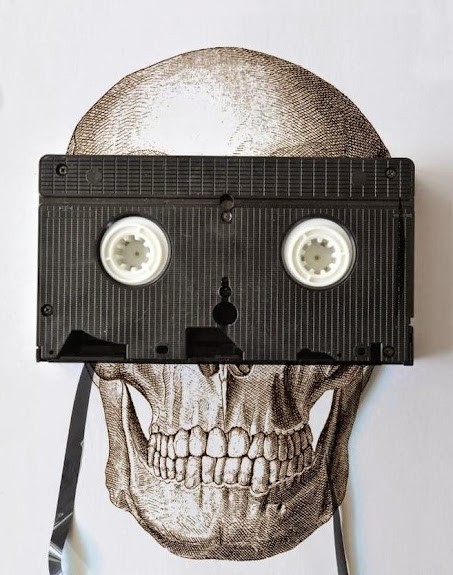JUDGEMENT DAY
Earth abides. And the sun also rises.
But nothing could prepare me for the shock,
Vanity of vanities, the crisis
Of Arnold beamed down nude between two trucks,
He who had prophesied his endless cycle,
And now was back, and up to his old tricks.
He needs your clothes, your boots, your motorcycle,
But instead gets a cigar to the heart,
Which goes and goes, cold as an icicle.
Dad and I sit in air-conditioned dark,
The popcorn melting like communion,
And the cinema sits in a car park
On a Florida night hot as a kiln.
A molten abstraction becomes a man,
T-1000, who looks like anyone,
Even a Midwestern police officer,
Or your foster mom with a sword for an arm
Who skewers your dad for drinking from the carton.
The devil’s in everything. Laid as linoleum,
All he has to do is touch her skin
And then he’s her. But something of her charm
Is lost in his cold impersonation.
You catch him by the tingle up your spine—
Her smile inorganic, reptilian,
Too saccharine when she says Woolfie’s fine,
Woolfie’s just fine, dear. John, honey, it’s late.
Please don’t make me worry. Slamming the pay phone,
Schwarzenegger says: Your foster parents are dead.
Your saviour too is cold, born with a gun,
And will deglove his arm to prove a point:
Not only is evil steel. So is good,
A solid machine forged in fire and quenched,
Austempered to be your personal god,
A real badass, pure Old Testament,
Who’ll kill a man for looking at you weird.
I stare up at my dad, whose temperament
Could quicksilver, and hold our tenuous world
On his mercurial surface. Even I,
Annealed with his blood, beaded and bobbed
Across his mirrored pool. Reflecting light
From the screen, T-1000’s changes ring,
Weltering upon Dad’s human face.
The wind changes direction, rivers run
From the sea, and they’ve travelled time for you,
The troubled child who might save everyone
With his own cold resolve, on Judgment Day,
August 29th 1997,
When the nascent machinery awakes,
And nukes humanity off to heaven,
Their bodies blown like leaves in the swelter,
Sheltered in a boy’s Ferris-black pupil.
Armageddon roars in a smelter—
Schwarzenegger pours liquid nitrogen
Onto the shape shifter, who falters
Then freezes. But a fire in the projection
Booth erupts, as from a SkyNet warhead,
And the film flares and melts at ignition—
Judgment Day. The visible scorched to tephra,
Fusing pyroclastic lapilli white,
The disembodied soundtrack playing on.
The night is igneous. It isn’t right.
And in the car, I’m not sure why, I cried.
Dad jokes WE’LL BE BACK, shifts into drive,
And rolls the windows down and then we ride
Down US-41, to the tin sea, where
The sun also sets. And the stars abide.
From The Scarborough (Signal Editions, 2014) by Michael Lista











